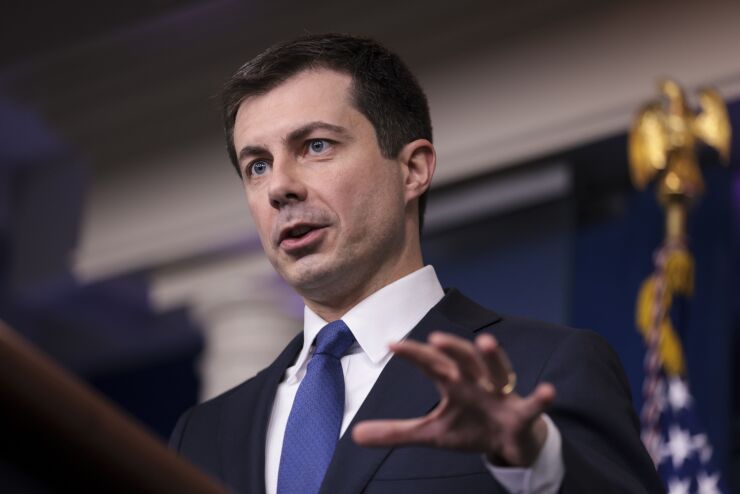A new stream of federal funding may find its way into office conversions and other efforts designed to boost the nation's housing supply, and public finance officers are eyeing a renewed effort to finance homebuilding with new rules on Community Development Block Grants and the freeing up of federally-owned land.
The new efforts were officially rolled out on Friday following a preamble from Department of Treasury Secretary, Pete Buttigieg late Thursday. "We're releasing new guidance to states, local governments, and developers on how they can use the Transportation Infrastructure, Finance and Innovation Act and the Railroad Rehabilitation Improvement Financing program," said Buttigieg. "Between them offer they over $35 billion in lending capacity so there is a lot of potential."
The money is flowing from the still unspooling Inflation Reduction Act which was passed in 2022 and authorized nearly $900 billion in spending with a major chunk going to energy and climate change-related issues. The announcement tees up several elusive goals and loops in efforts by the General Services Administration, and the Department of Housing and Urban Development.

"By making low-cost financing available for conversions and housing projects near public transportation, this guidance and policy statement will increase housing supply, while encouraging state and local governments to improve their zoning, land use, and transit-oriented development policies," the White House said in a release.
The program uses the administration's multi-pronged,
The new initiative aims to cut greenhouse gas emissions by moving workers closer to mass transit and reducing their dependence on cars. To support the effort the White House released a roadmap for making office space conversions a reality. "We're releasing a new guide highlighting twenty-three federal programs that can be used to finance conversions," said Vincent Reina, senior advisor, Housing and Urban Policy, White House Domestic Policy Council.
HUD's piece of the puzzle includes a review of how the agency can use its existing programs to tackle a new problem while staying true to the administration's efforts. "We are releasing an updated notice on how our Community Development Block Grants can be used to acquire and convert commercial properties to residential uses," said Adrianne Todman, deputy secretary, HUD Development. "This is the first time that this guidance has been updated in fifteen years."
The GSA is being freed up to explore the possibility of releasing government-owned property located near transit that could be converted into residential units.
The news is being viewed as cautiously optimistic by public housing leaders.
"The HFAs look forward to working with property owners and developers to support more conversions and with the federal government to optimize the process for transforming obsolete federal properties," said Stockton Williams, executive director, National Council of State Housing Agencies.
Converting office space is complicated by zoning regulations, conversion costs and the basic architectural differences that separate commercial from residential space, including window placement.
In
Conversion remains a viable option at the county level. "With a shortage of potentially as many as 3.8 million housing units, we need as many innovative approaches as possible," said Nicole Weissman, director of strategic communications, National Association of Counties.





